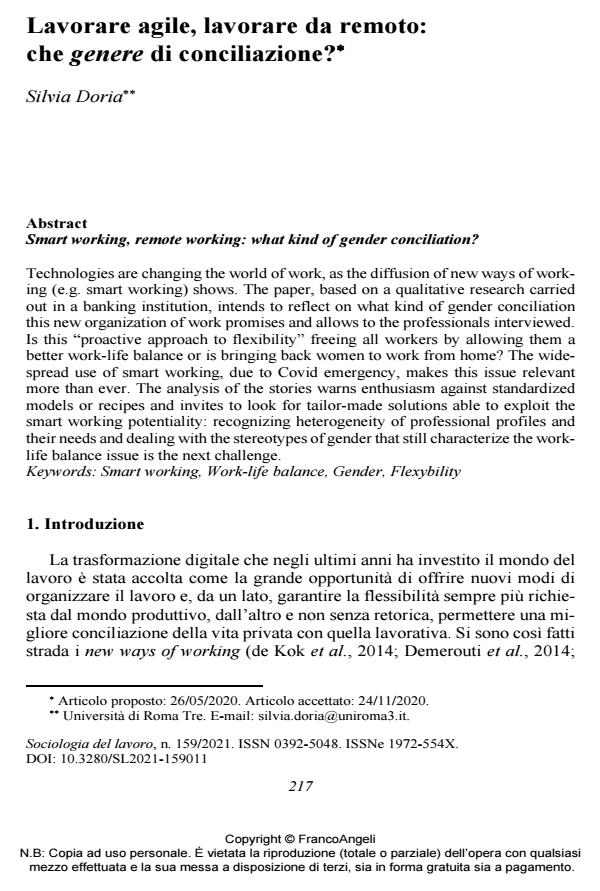Smart working, remote working: what kind of gender conciliation?
Journal title SOCIOLOGIA DEL LAVORO
Author/s Silvia Doria
Publishing Year 2021 Issue 2021/159
Language Italian Pages 20 P. 217-236 File size 243 KB
DOI 10.3280/SL2021-159011
DOI is like a bar code for intellectual property: to have more infomation
click here
Below, you can see the article first page
If you want to buy this article in PDF format, you can do it, following the instructions to buy download credits

FrancoAngeli is member of Publishers International Linking Association, Inc (PILA), a not-for-profit association which run the CrossRef service enabling links to and from online scholarly content.
Technologies are changing the world of work, as the diffusion of new ways of working (e.g. smart working) shows. The paper, based on a qualitative research carried out in a banking institution, intends to reflect on what kind of gender con-ciliation this new organization of work promises and allows to the professionals interviewed. Is this "proactive approach to flexibility" freeing all workers by allow-ing them a better work-life balance or is bringing back women to work from home? The widespread use of smart working, due to Covid emergency, makes this issue relevant more than ever. The analysis of the stories warns enthusiasm against standardized models or recipes and invites to look for tailor-made solutions able to exploit the smart working potentiality: recognizing heterogeneity of professional profiles and their needs and dealing with the stereotypes of gender that still charac-terize the work-life balance issue is the next challenge.
Keywords: Smart working, Work-life balance, Gender, Flexybility
- What makes work smart in the public sector? Insights from a bibliometric analysis and interpretive literature review Rocco Palumbo, Mohammad Fakhar Manesh, Damiano Petrolo, in Public Management Review /2024 pp.1449
DOI: 10.1080/14719037.2022.2152479
Silvia Doria, Lavorare agile, lavorare da remoto: che genere di conciliazione? in "SOCIOLOGIA DEL LAVORO " 159/2021, pp 217-236, DOI: 10.3280/SL2021-159011